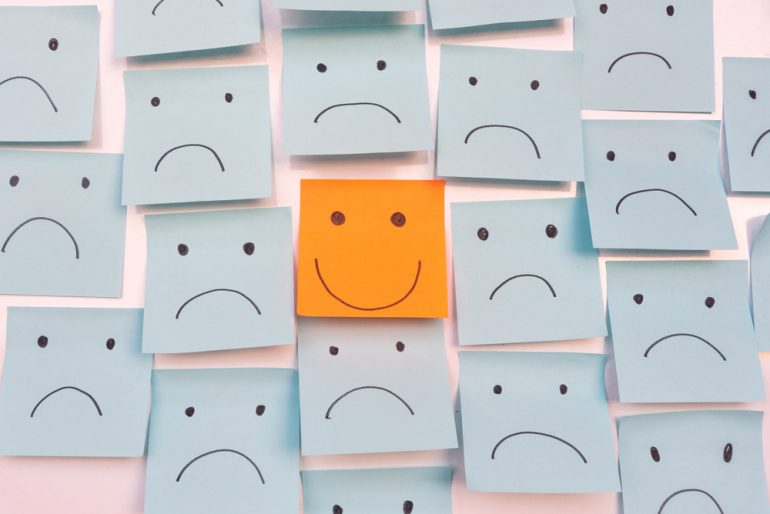Ways to think positively, even when it seems hard in negative world
It’s difficult to remain positive when a lot of negative circumstances are going on around us.
But research shows the importance of thinking positive no matter what.
According to an article by the Mayo Clinic, thinking positive can have the following benefits:
- Lower rates of depresssion
- Lower levels of stress and pain
- Greater resistance to illness
- Better cardiovascular health
- Reduced risk of death from cancer or infections
- Better coping skills during hardships
- Increased lifespan
Of course, all the above begs an obvious question.
I know the benefits of positive thinking, but what are ways/methods to practice and incorporate positive thinking into my life?
Here are some suggestions, according to the article.
- Identify areas to change. If there are areas in your life that you view negatively (work, relationships, driving in traffic) try to turn it around and think of positive aspects of those areas (I’m lucky to have a job or car, etc.).
- Humor can be good. Don’t be afraid to laugh or smile often throughout a day. Research has shown that smiling or laughing can be good for your health and reduce stress.
- Follow a healthy lifestyle. Getting proper exercise and sleep and eating properly can improve mood and reduce stress.
- Surround yourself with positive people. Who wants to be around a “Debbie Downer?” Being around people who are supportive and uplifting is important to not only reducing anxiety and stress, but providing motivation to achieve all you want.
Practice positive self-talk. Follow a rule where you don’t say anything to yourself that you wouldn’t say to anyone else. Focus on positive things in your life and be encouraging of yourself.
Filtering out negative thoughts
One way to bring more positive thinking into your life is by making sure common negative thoughts below are identified and filtered out.
- Personalizing. Don’t automatically blame yourself if something unforeseen happens.
- Catastrophizing. Don’t always assume the worst in people or that the worst is going to happen.
- Blaming. Be accountable for thoughts and feelings rather than blaming others all the time.
- Magnifying. Avoid making a big deal out of minor problems.
- Saying you “should” do something. Don’t blame yourself for not doing all the things you think you “should” be doing.
- Perfectionism. Don’t hold yourself to unattainable standards. You’re human!
Polarizing. This is only seeing things as good or bad, not in the middle.

